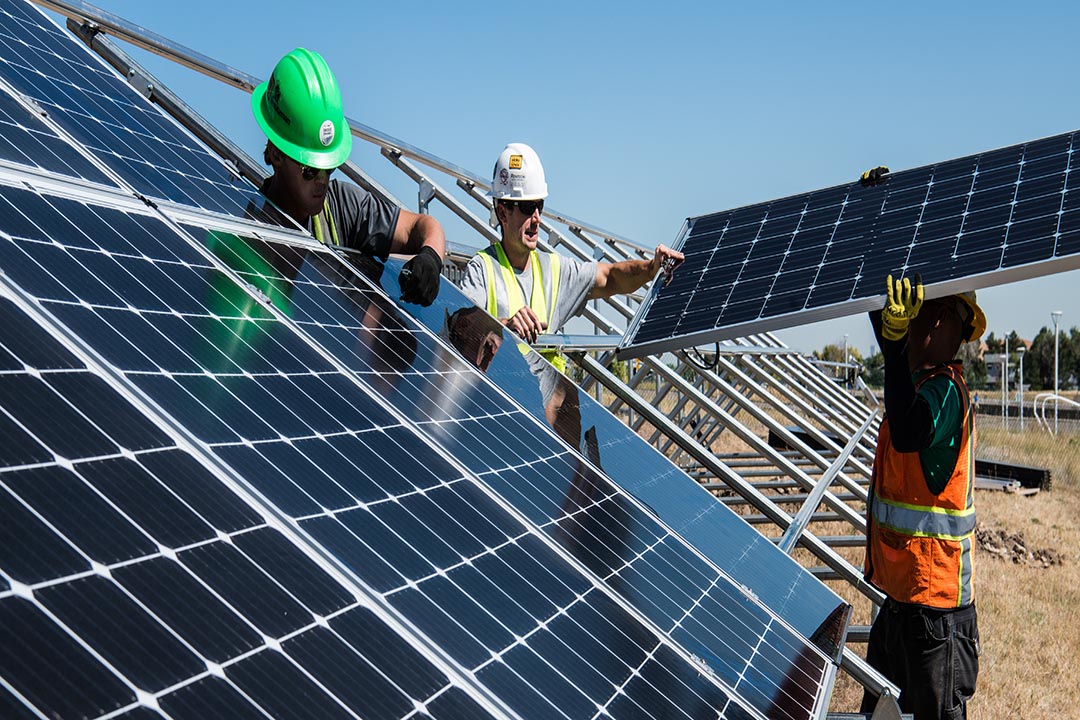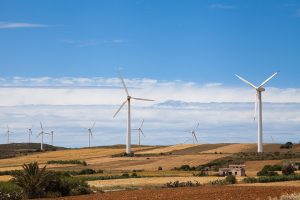The UN Department of Economic and Social Affairs (DESA) has published a report synthesizing inputs collected from stakeholders during a thematic e-consultation for the UN High-level Dialogue on Energy (HLDE). This policy brief reviews the report, summarizes stakeholders’ contributions to the five themes of the Dialogue, and looks at the road ahead.
The UN Secretary-General will convene the HLDE to promote implementation of energy-related goals and targets of the 2030 Agenda for Sustainable Development and the Paris Agreement on climate change. The Dialogue aims to support implementation of the UN Decade of Sustainable Energy for All (2014-2024) and to accelerate ambition towards the achievement of SDG 7 (affordable and clean energy). Scheduled to take place in September 2021, the HLDE will convene at the summit level. The Dialogue will be the first global gathering on energy under the auspices of the UN General Assembly (UNGA) since the UN Conference on New and Renewable Sources of Energy in 1981.
The HLDE will be structured around five themes:
- Energy access;
- Energy transition;
- Enabling SDGs through inclusive, just energy transitions;
- Innovation, technology, and data; and
- Finance and investment.
The Ministerial Thematic Forums for the HLDE, held from 21-25 June 2021, launched reports by five Technical Working Groups on the Dialogue’s five priority themes, providing recommendations for action. The HLDE Ministerials included multi-stakeholder dialogues to give representatives from different sectors and organizations the opportunity to explore and provide inputs on the HLDE’s five themes.
Ahead of the June Ministerials, DESA’s Division for Sustainable Development Goals (DSDG) organized an e-consultation to draw technical inputs to the HLDE preparatory process from stakeholders. The Stakeholders Thematic E-consultation convened from 8 April to 7 May 2021, through five open forms – one for each of the HLDE’s themes – to collect contributions from non-governmental organizations (NGOs), academic institutions, the scientific community, the private sector, indigenous peoples, youth, major groups, and others. The forms included a limited number of questions for each thematic area of the Dialogue, inviting “concise and straightforward” contributions from stakeholders. The e-consultation drew a total of 84 stakeholder inputs from 30 countries representing all six regions of the world. A selected number of submissions was featured in a dedicated Online Technical Debate on 3 June 2021.
The summary report identifies the main gaps and challenges that persist across the HLDE’s five thematic areas as follows:
- Access to affordable, reliable, sustainable, and modern energy is lagging because of continued and widespread dependence on unsustainable fossil fuel resources due to, among other causes, “cultural” reliance on traditional practices and infrastructures, and a general lack of awareness of new and existing renewable technologies that can enable safe energy access for all;
- Transition to affordable and clean energy is not adequately supported by policies and economic incentives needed to enable a low-carbon society transformation where emissions are halved by 2030 and net-zero emissions are achieved by 2050;
- Multi-stakeholder consultations and partnerships are key to support implementation of SDG 7 and related targets. The needs of communities and affected populations must be fully considered in national and local-level strategies and projects, to guarantee that no one is left behind;
- Technology transfer between developed and developing countries, based on “disproportional and inequitable practices,” jeopardizes the dynamic learning processes needed to adapt and create market share for low-carbon technologies in developing economies. In many countries, high risk in green investment projects is a great barrier to developing new technology solutions.
The report highlights the following key messages distilled from the e-consultation’s outcomes:
- Sustainable access to energy can be achieved only through strong investment and financial planning. Governments, the private sector, and other stakeholders need to enable the production and distribution and to raise awareness of clean energy sources following the strategic recommendations provided by multi-stakeholder consultations.
- An efficient and timely energy transition must be supported by adequate policy incentives for the development of renewable energy projects and initiatives promoting energy efficiency. Governments must give clear signals through policies about the effects of non-rational use of energy for the environment, economy, and society.
- There is a need to build a more dynamic and sustainable model of technology, innovation, data collaboration, and capacity building through partnerships between developing and developed countries and multilateral partnerships. Co-innovation is key to give impetus to technological collaboration, sharing, and development.
- Smooth and streamlined administrative and permitting processes for green investments are urgently needed to enable the ambitious investment pathways required to achieve climate neutrality by 2050. Finance and investment for sustainable, reliable, affordable, and clean energy are essential catalysts to meet SDG 7.
Discussions on energy access addressed persistent inequalities, unfriendly policies, ineffective financial flows, and insufficient research for renewable and affordable technologies. Stakeholders identified inequality and poverty as some of the main hurdles to ensuring access to affordable, reliable, and sustainable energy. At the same time, they underscored that extreme poverty cannot be eradicated without ending energy poverty. The energy-climate-health nexus and the central role of energy access to advancing all dimensions of human and economic development were also emphasized.
To address the main gaps and challenges related to SDG 7 energy access targets, participants called for, inter alia, “amplification” of financial flows, “uplifting awareness creation,” trainings and programmes on renewable energy technologies, and aligning environmental needs with the right to access affordable and clean energy.
Stakeholders emphasized the role of energy transition in mitigating greenhouse gas (GHG) emissions and combating climate change. Among challenges, they highlighted widespread absence of aggressive public policies on the usage of fossil fuels, inadequate and obsolete infrastructure, and the need to ensure that transition caters equally to all societies. Participants identified the need for concrete policy incentives, less carbon-intensive fuels from biomass, and a rights-based approach for policies targeting energy transition to help achieve SDG 7 energy transition targets.
Among the main challenges to enabling the SDGs through inclusive and just energy transition, e-consultation participants cited gender and income inequalities, and called for more emphasis on gender empowerment as a cross-cutting issue. They underscored the connection between climate and human rights, and urged for more multi-stakeholder partnerships, knowledge exchange, and reliable data. Better coordination between the private and public sectors for investments in energy, more coordinated action between sectors, and the need to ensure a just transition across entire supply chains were mentioned among concrete measures needed to maximize the positive impacts of inclusive and just energy transitions on the achievement of other SDGs.
Some of the challenges stakeholders invoked in reference to innovation, technology, and data included poor technology transfer between developed and developing countries, the high cost of new technologies, a lack of data, weak partnerships, poor investments, and low levels of research and development. For the development and application of data, technology, innovation, research, and capacity building in support of SDG 7 and carbon neutrality, they recommended multi-stakeholder partnerships, greater investment in multilateral innovative projects, efforts to collect more data, training and skills development, and strategic planning.
Stakeholders highlighted inadequate policies, discrepancies between climate goals and state policies, and high investment risks as the main challenges for the mobilization of public and private finance and investment to achieve SDG 7 and carbon neutrality. To remedy the situation, they proposed creating stable and robust regulatory frameworks aligned with climate neutrality, and finance mechanisms that take into account a human rights-based approach and establish robust social and environmental safeguards.
The road ahead
The next step on the road to realizing SDG 7 is the HLDE itself. The ENB analysis of the Ministerial Thematic Forums notes that the Dialogue is expected to produce two main outcomes: a global roadmap for concrete actions needed to achieve SDG 7; and “energy compacts” setting out voluntary commitments and actions.
Already during the June Ministerials, actors at all levels presented over two dozen such compacts, setting out actions and commitments they will undertake to help achieve SDG 7 and net-zero emissions. These Compact Previews sought to inspire additional commitments in time for the HLDE to “demonstrate sufficient new will and commitment to prompt new waves of action to bridge the large gap that exists between the current reality and the aspirations in the SDG 7 targets.” The official registration process for the Energy Compacts opened at the start of August, and, according to the HLDE Secretariat, governments, businesses and others have begun sending in their Compacts following the guidelines provided. These suggest that Compacts be submitted by 31 August to ensure that they can be reviewed, approved and posted online in the Compact Registry by the time of the High-level Dialogue.
Speaking at the Ministerial Thematic Forums, UN Secretary-General António Guterres warned that the world is “running far behind in the race against time” to achieve SDG 7 by 2030 and net-zero emissions by 2050. HLDE Co-Chair Achim Steiner, Administrator of the UN Development Programme (UNDP), said that while the world “on the cusp of a historic tipping point,” it is “really up to us” “how fast and how fairly” a clean energy revolution happens. It remains to be seen whether governments can address stakeholders’ concerns that might stand in the way of new, ambitious compacts in a way that would help the world win this race against time.


